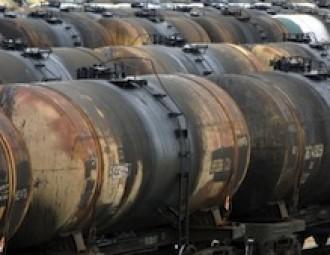Belarus caught in oil frauds by Russian Ministry of Energy

Russian oil supplies to Belarus frequently became a subject of debate between the two countries.
In early 2011, after signing the Customs Union agreement and setting up the Common Economic Space, Belarus received opportunities to import Russian oil on a duty-free basis. The country undertook a commitment to pay Russia export duties on oil products, regardless of their origin, if they are exhorted outside the Customs Union. Six months after an agreement was reached, a new scandal aroused. The Russian authorities figure out that Belarus exported oil products to Europe under the guise of solvents and thinners. Russia didn't receive money for them, because these products are free of export duties when being exported outside the Customs Union.
The oil relations between the countries took a new twist after Russia refused to use petrol lower than the Euro III standard. As a number of Russian companies don't have enough time to modernise oil refineries to meet the new standards, Russia has faced a real threat of fuel deficit. In particular, the Federal Antimonopoly Service supposes that the market is likely to meet acute fuel shortage in three years: the deficit may increase 70 times. The most evident solution to the problem was to cover the fuel shortage by oil products supplies from Belarus, which inherited relatively new refineries (the Mozyr refinery and Nafthan) from the “late USSR”.
Belarus asked for duty-free supplies of 23 million tonnes of oil in 2013, but Russian side was ready to ship only 18.5 tonnes on a condition of returning 2.1 tonnes of Euro III oil products to Russia. The countries held a series of negotiations. Finally, Russian Deputy PM Arkady Dvorkovich and Belarusan First Deputy Prime Minister Uladzimir Siamashka agreed in December on the re-export of 3.3 million tonnes of oil products and shipment of 5.75 million tonnes of oil in the first quarter of the year (based on supplying 23 million tonnes per year).
The Belarusan side undertook commitments to give Russian companies the right to process 50% of oil deliveries to Belarusan refineries and offer 8,500 tonnes of petrol, 4,000 tonnes of diesel fuel and 810 tonnes of jet fuel daily for sale in Russia. The main condition is to sell Russian companies fuel at the prices set on Russian exchange that must not exceed the previous day's closing price. Any departures from these conditions should be agreed upon by the parties.
According to the monitoring of the factual supplies of oil and oil products for the period January – February 2013, Belarus doesn't fulfil the country's obligations, Izvestia newspaper learnt from a source in the Russian Ministry of Energy. Formally, the average volume of fuel offered for sales in January was 28,000 tonnes per day with the set minimum of 12,500 tonnes. In February, the daily volume was 23,000 tonnes, but the volume of sold oil products remained low reaching only 15% and 0.2% of the proposed volume of petrol and diesel fuel respectively, the source in the Ministry of Energy says. According to the source, Russian companies don't buy Belarusan products, because on 15 of 17 trading sessions Belarus proposed the prices higher than the previous day's closing price. This situation was observed on all 18 trading sessions in February. The Belarusan side failed to agree the departure from the reached conditions of oil products supplies with the Russian side and acted at its own discretion, Izvestia's source adds.
-
03.01
-
07.10
-
22.09
-
17.08
-
12.08
-
30.09










































